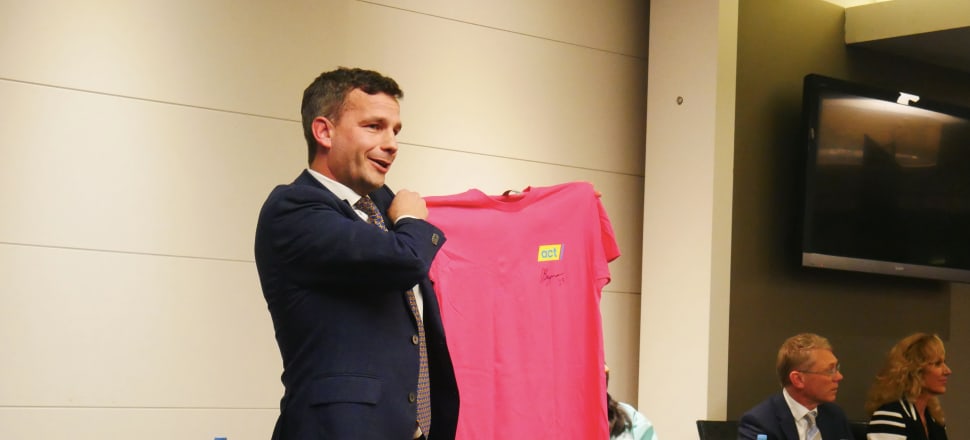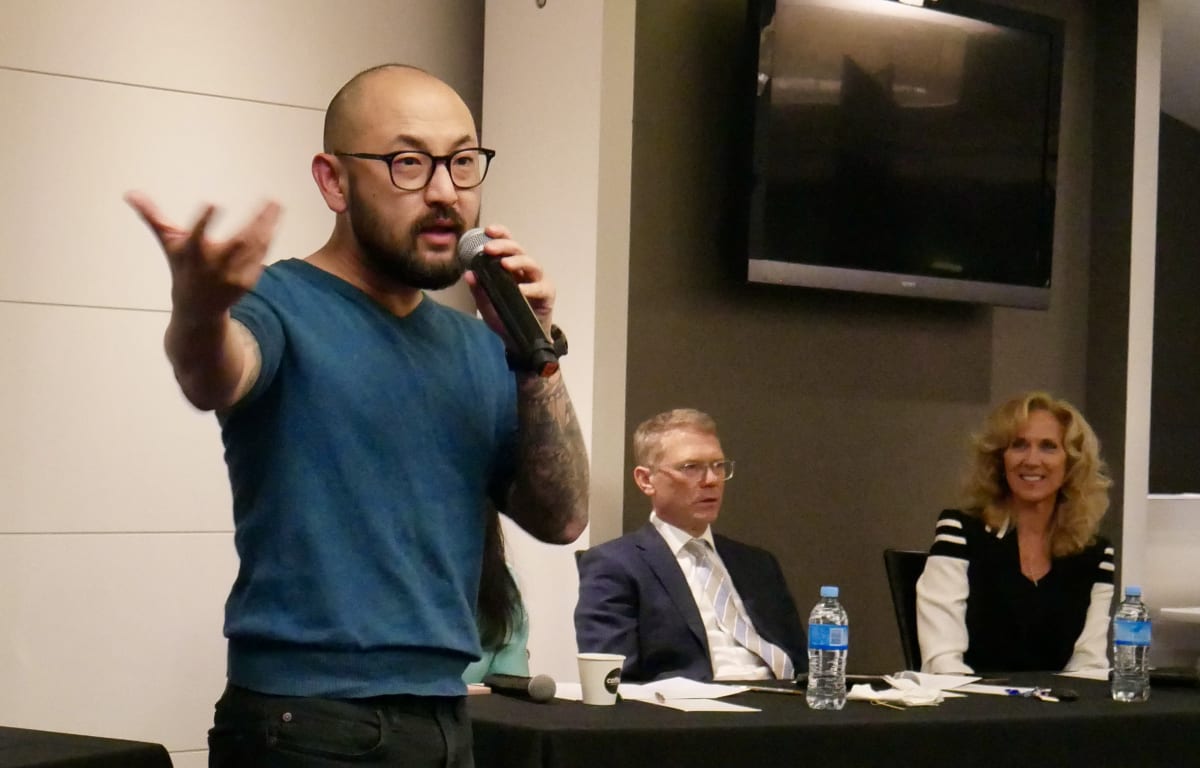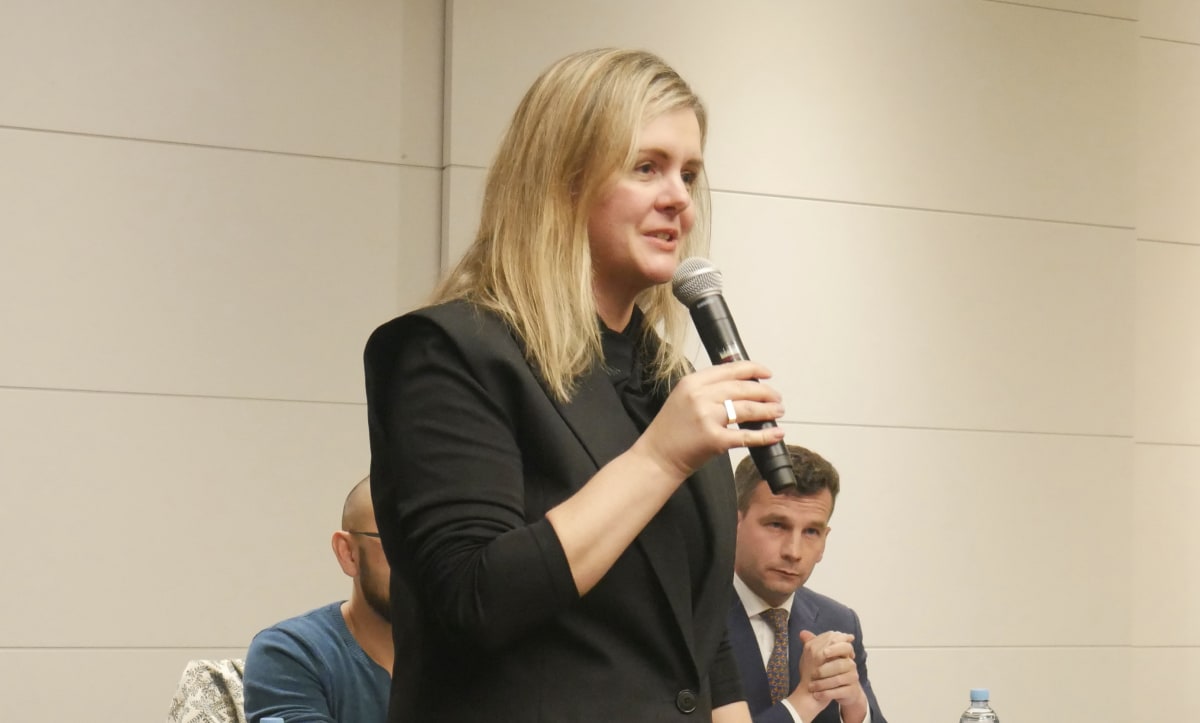
Six candidates are campaigning in New Zealand’s smallest electorate, despite it being an Act Party stronghold for nearly 20 years
There’s something funny going on with the numbers in Epsom.
Act leader David Seymour received nearly 20,000 electoral votes there in the last election, while his party won fewer than 5000.
READ MORE:
* National and Labour eye up Auckland Central
* Peters feeds the 500 in the north
Meanwhile, National’s Paul Goldsmith received slightly more than a third of National’s 15,000 strong party votes as electoral votes.
At this point it's a long-standing tradition National would essentially cede the territory to coalition partner Act, ensuring the smaller party at least one seat in Parliament.
But like many urban electorates, the 20 square kilometres making up Epsom are liable to provide rapid demographic shift and uncertain political futures.
And while party vote wins have been a shoo-in for National for around 20 years, the last election saw a good chunk of National voters crossing over to either Labour or Act.
National’s party vote shrank from 59 percent in 2017 to 37 percent in 2020.
Much of this could be put down to the much talked about red wave of 2020, as Labour’s early pandemic popularity saw them win over usual National voters.
But while the polls show how the wave has broken and rolled back at pace, Act’s future only looks brighter.
The party more than quadrupled its usual party vote take in Epsom last time around, and a steady increase in opinion polling means David Seymour was able to front up before a room of Epsom voters on Tuesday night in full confidence.
A debate at Epsom’s Alexandra Park saw the six Epsom candidates vie for the support of a crowd comprised mostly of older rotarians and young professional supporters of event organisers, Point of Order.
Event organiser Hamish Smith said the group was putting together debates to get people to engage in politics in a face-to-face environment, hopefully cutting down on the tribalism and venom attached to politics online.
There was a little heckling of Labour candidate Camilla Belich as she told the crowd why they should give their party vote to the incumbent. However, each of the candidates was ready to toss good-natured barbs at one another.
But while the energy of both Greens candidate Dr Lawrence Xu-Nan and The Opportunities Party candidate Dr Nina Su stood out, it was Seymour who was ultimately the most comfortable in front of this particular crowd.
Event MC Timothy Giles called him the “Tyson Fury of Epsom” as he took his microphone to tell them representing Epsom had always been his “first job in politics”.
Seymour’s candidate vote has slowly swollen on the streets of Remuera and Newmarket, and it would be no easy task to knock him out of the ring at this point.
That’s why a number of the candidates are using the pulpit afforded to Epsom candidates to push for a party vote.
Xu-Nan, a former Egyptologist, said he knew his party’s policies didn't always find fans in Epsom, but the changing demographics of the area meant a change wasn't impossible.
Epsom’s proximity to the city’s universities has granted it a high student population, with some of the country's highest concentrations of people in the 20 to 30 age bracket.
Xu-Nan said recent weather events had made climate action more of a priority among local voters.
“How many of you now the minute it rains wonder if this is when the roof falls in?” He asked the crowd to murmurs of assent.

It’s not a focus for all of his competitors, however.
New Zealand First’s Tanya Unkovich said she would address societal division, laying part of the blame on frightening climate change stories.
“Yes, climate change has been happening for thousands of years, but I’m going to address the topic of fear,” she said. “We need to be resilient so we don’t fall into this extended narrative of fear which is frightening our children and frightening our seniors as well.”
Normally when people talk about climate resilience they are referring to the ability of infrastructure to withstand big changes in the weather, but Unkovich instead gave the example of going for a walk during Cyclone Bola.
“That is the kind of resilience that I feel we had, but we are losing it now.”

Seymour meanwhile said he didn’t like climate change viewpoints being used as “a moral purity test".
"You’re with us or against us."
He believed everybody could see climate change presented a challenge, but said he would dial current climate action down a notch.
“The New Zealand Government has the possibility of overtaxing and pushing production offshore, shooting ourselves in both feet ... that will raise global emissions because less efficient producers elsewhere will take up the slack from New Zealand producers.”
But he admitted there was a fine balance to be struck, saying too little climate action would also have consequences for the economy.
“Also if we do nothing, we risk becoming a global pariah and seeing walls go up against New Zealand exports and trade, so we’ve got to keep that balance…” he said. “I’m just in the camp of dial it down a notch, look at the realistic choices we have and make the most of this for people on the ground in New Zealand.”
Labour’s Camilla Belich pointed to recent Labour policies like the clean car discount and agricultural regulation as efforts taken to reduce emissions.
“We’ve done a lot, and we need to do more, and that’s why I think you should vote Labour.”
She pointed out bold action would be needed to solve pollution into Hobson Bay – recently found to be one of the most polluted bays in the country.

Dr Nina Su from TOP, a paediatrician and emergency doctor, said the two major parties didn't seem to have a clue how to address climate change.
“We’ve got a $24 billion transport package that’s just going to bring more cars on the road, we’ve got a $42 or $45 billion new harbour bridge crossing that’s also going to just add to the cars…”
National’s Paul Goldsmith rebuffed the criticism of the road-heavy transport plans that have held centre stage in both Labour and National’s offerings this campaign.
“You’re constantly talking about these terrible things called cars; you are familiar with electric cars, I take it? And in the next few decades everybody is going to be driving electric cars, and they are going to have roads.”

But Su in particular wasn’t there to mince words.
“It must be nice, David, having a little pet over here willing to roll over and give you Epsom,” she said.
For Goldsmith’s part, he was there to echo much of his leader Christopher Luxon’s speaking points in his ‘Get New Zealand Back on Track’ tour, touching on law and order and cost of living as the major issues.
The evening ended with an auction of items donated by each party, the proceeds of which all went to The Kindness Collective.
“I finally beat David in something,” Goldsmith said as a signed copy of one of his own books (2009’s We Won, You Lost, Eat That! A political history of tax in New Zealand since 1840) earned more than a shockingly pink Act t-shirt signed by Seymour.







